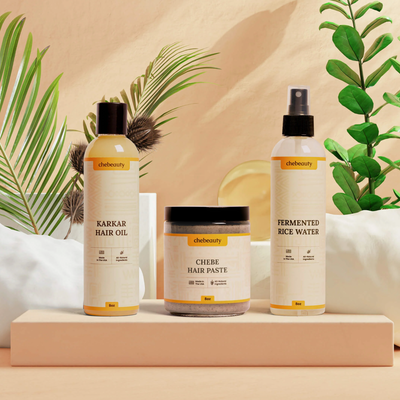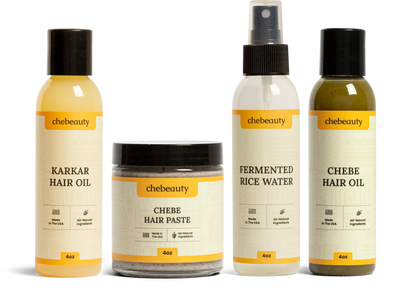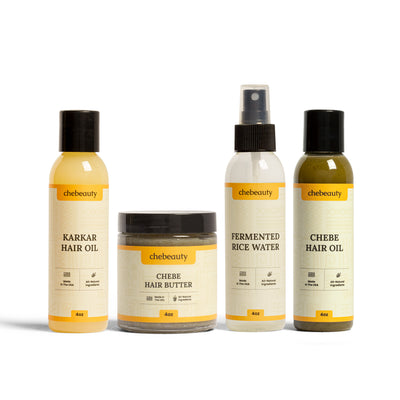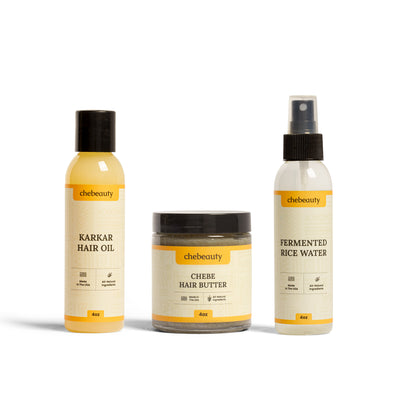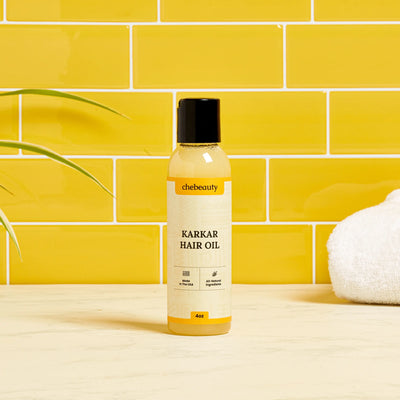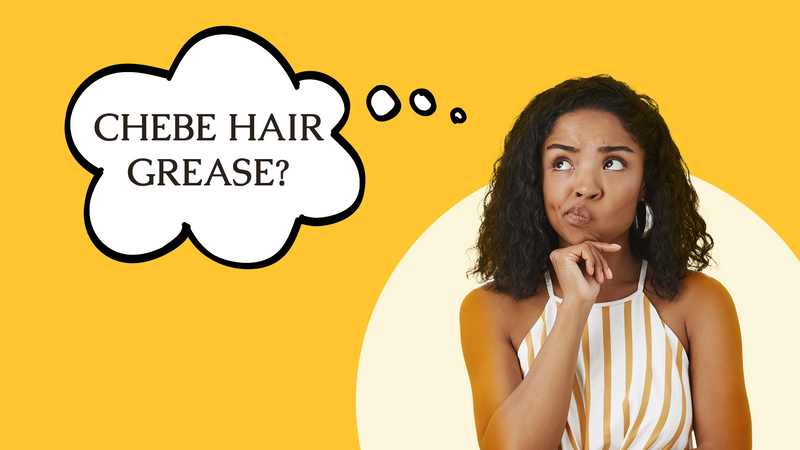Black hair, with all its unique beauty, is not immune to damage. Dealing with issues like breakage, split ends, and overall damage can be a frustrating and disheartening experience. In our blog, we delve into the complexities of damaged Black hair, offering insights, solutions, and empowering techniques to help you reclaim the health and vitality of your locks.
Introduction to the importance of understanding the causes and repair techniques
Due to Afro-textured hair representing a minority in most Western societies, the multiple unique issues faced by those with this unique hair texture can remain ignored. From harsh styling practices to exposure to environmental stressors like sun and pollution, Black hair faces unique challenges that can lead to damage over time. This widespread concern highlights the need for informed approaches to hair care tailored specifically to the needs of Black hair types.
Understanding the underlying causes of damaged Black Hair is an essential step towards healthier locks. By recognizing the role of factors like excessive manipulation, lack of moisture, and product overload, you can begin to implement targeted strategies to mitigate damage and promote healthy hair growth.
So let’s dive straight into it!
Understanding Damaged Black Hair
Black hair, with its unique texture and structure, requires specialized care to maintain its health and vibrancy. To effectively address and repair damage, it's crucial to first understand the distinguishing characteristics between damaged and healthy Black hair. This comprehension serves as the cornerstone for implementing targeted strategies to nurture and restore hair to its optimal state.
Differentiating between damaged and healthy Black hair
Distinguishing between damaged and healthy Black hair involves a keen observation of several key indicators. Healthy Black hair typically exhibits:
Elasticity: Healthy Black hair has the ability to stretch and return to its original state without breaking. This elasticity indicates good moisture retention and structural integrity.
Sheen: Healthy Black hair boasts a natural shine or luster, reflecting light evenly across its surface. This sheen is a sign of well-hydrated hair cuticles and reflects overall hair health.
Strength: Healthy Black hair is resilient and resistant to breakage. It can withstand combing, brushing, and styling without significant damage or loss.
On the other hand, damaged Black hair may display:
Dryness: Damaged Black hair often feels dry and lacks moisture. This dryness can result from environmental factors, chemical treatments, or improper care practices.
Brittleness: Damaged Black hair is prone to breakage and splitting. It may feel rough or coarse to the touch and is more susceptible to tangling and knotting.
Reduced Elasticity: Damaged Black hair may have reduced elasticity, leading to increased breakage when manipulated or stretched. This loss of elasticity can result from damage to the hair's protein structure or moisture imbalance.
Common causes of damage in Black hair
Environmental factors: Black hair is particularly susceptible to environmental stressors, such as excessive heat and humidity, which can deplete moisture levels and lead to dehydration and breakage. Prolonged exposure to these elements can compromise the hair's integrity, resulting in dullness and frizz.
Chemical treatments: Chemical treatments, such as relaxers and colorants, are often used to alter the natural texture or color of Black hair. While these treatments can achieve desired aesthetic results, they can also inflict significant damage if not applied or maintained properly. Chemical overload can weaken the hair shaft, causing it to become fragile and prone to breakage.
Wrong hair care practices: Harsh styling techniques, such as tight braids or high-tension hairstyles, can exert undue stress on Black hair, leading to traction alopecia and irreversible damage to the hair follicles. Additionally, the use of harsh products containing sulfates and alcohol can strip the hair of its natural oils, leaving it dry, brittle, and susceptible to breakage.
Types of Damage in Black Hair
Black hair is prone to various types of damage, each requiring specific attention and care. Understanding these different forms of damage is essential for effectively addressing and preventing hair issues within the Black hair community.
Split ends: Causes, identification, and prevention
Causes: Split ends occur when the protective outer layer of the hair cuticle becomes damaged or wears away, leading to the splitting of the hair shaft. Common causes include excessive heat styling, rough handling, chemical treatments, and environmental stressors.
Identification: Split ends are characterized by the splitting or fraying of the hair shaft, typically seen towards the ends of the hair strands. They may appear dry, brittle, and prone to tangling, detracting from the overall appearance and health of the hair.
Prevention: Preventing split ends involves adopting gentle hair care practices and minimizing exposure to damaging factors. This includes reducing heat styling, using protective styles, regularly trimming the ends of the hair, and incorporating moisturizing treatments to maintain hair health and prevent further damage.
Breakage: Understanding the factors contributing to breakage in Black hair
Factors contributing to breakage: Breakage in Black hair can stem from a variety of factors, including excessive manipulation, harsh styling techniques, lack of moisture, and protein deficiency. Additionally, the unique structure of Black hair, characterized by its tight coils and spirals, can make it more susceptible to breakage if not properly cared for.
Understanding the causes: Understanding the underlying causes of breakage is essential for devising effective prevention strategies. By identifying factors such as overexposure to heat, tension from tight hairstyles, or inadequate hydration, you can take proactive steps to minimize breakage and promote hair strength and resilience.
Prevention: Preventing breakage in Black hair involves adopting an approach to hair care that prioritizes gentle handling, proper hydration, and protective styling. This includes using moisturizing and strengthening products, which contain natural ingredients that work gentler on hair and avoiding harsh chemical treatments that can weaken the hair shaft.
Thinning: How to recognize and address thinning hair in the Black hair community
Recognition: Thinning hair in the Black hair community may manifest as a decrease in hair density or volume, widening of the hair part, or visible scalp exposure. Factors such as genetics, hormonal changes, and certain medical conditions can contribute to thinning hair, necessitating early recognition and intervention.
Addressing thinning hair: Involves identifying the underlying causes and implementing targeted treatment approaches. May include scalp treatments to stimulate hair growth, dietary changes to promote hair health, and the use of specialized products formulated to strengthen and volumize the hair shaft. Additionally, adopting protective styling techniques and avoiding excessive tension on the hair can help minimize further thinning and promote overall hair wellness within the Black hair community.
Repair Techniques for Damaged Black Hair
Repairing damaged Black hair requires a multifaceted approach that addresses the specific needs of the hair type. By employing targeted repair techniques, you can effectively restore the health and vitality of their hair, promoting strength, resilience, and overall well-being.
Moisture retention: Importance of hydration and techniques for maintaining moisture
Importance of hydration: Adequate moisture is essential for maintaining the health and integrity of all hair types - let alone Afro-textured ones. The unique structure of Black hair, characterized by its tightly coiled and porous nature, makes it more prone to dryness and moisture loss. Hydration helps to lubricate the hair shaft, preventing breakage, and enhancing manageability and suppleness.
Techniques for maintaining moisture: To optimize moisture retention, you can incorporate various techniques into their hair care routine. This includes regular deep conditioning treatments using moisturizing and emollient-rich products, such as leave-in conditioners or hair butters.
Protein treatments: Benefits and application methods for strengthening damaged hair
Benefits of protein treatments: Protein is essential for maintaining the structural integrity of the hair, providing strength and support to prevent breakage and damage. Protein treatments help to replenish lost protein in the hair shaft, repairing damage caused by chemical treatments, heat styling, or environmental stressors. They also help to fortify the hair, improving elasticity and resilience.
Application methods: Protein treatments can be applied in various forms, including protein-rich conditioners, or treatments specifically formulated for damaged hair, such as Rice Water. These products are typically applied to clean, damp hair and left on for a specified period to allow the protein to penetrate the hair shaft. After rinsing, the hair is left strengthened, fortified, and more resistant to damage.
Protective styling: How to protect and promote hair growth through gentle styling options
Protective styling: Protective styling involves wearing hairstyles that minimize manipulation and tension on the hair, reducing the risk of breakage and damage. Examples of protective styles include braids, twists, buns, and updos, which help to shield the hair from environmental stressors and promote hair growth by minimizing friction and tangling.
Promoting hair growth: Protective styling not only protects the hair from damage but also creates an optimal environment for hair growth. By reducing manipulation and preventing breakage, protective styles allow the hair to retain length and density, fostering healthy growth and minimizing setbacks. Additionally, incorporating scalp massages and nourishing treatments can further stimulate circulation and promote hair follicle health, supporting robust hair growth within the Black hair community.
Tips for Maintaining Healthy Black Hair
Maintaining the health and vibrancy of Afro-textured hair requires specialized care tailored to its unique needs. By incorporating mindful practices and selecting suitable products, you can promote the strength, vitality, and beauty of their hair, ensuring it thrives and flourishes.
Choosing the Right Hair Care Products: Ingredients to Look For and Avoid
Selecting the appropriate hair care products is crucial for nurturing Black hair. Look for ingredients that cater to its specific requirements, such as:
Moisturizing Agents: Black hair thrives on moisture. Seek out products containing hydrating ingredients like shea butter, coconut oil, and Chebe, which help to retain moisture, combat dryness, and enhance elasticity.
Natural Oils: Afro-textured hair benefits from natural oils that nourish and protect the hair shaft. Consider products infused with oils such as jojoba oil, argan oil, and Karkar oil, which provide essential nutrients and seal in moisture, promoting softness and shine.
Protein: Protein-rich ingredients like keratin are essential for strengthening Black hair and preventing breakage. Incorporate products with protein to fortify the hair shaft and improve resilience, such as Rice Water.
Avoid products containing harsh sulfates, alcohol, and silicones, as these can strip the hair of its natural oils and cause dryness and brittleness. Additionally, opt for products specifically formulated for Afro-textured hair to ensure they cater to its unique requirements.
Proper Hair Care Routines: Establishing a Regimen Tailored to Black Hair
Establishing a proper hair care routine is paramount for maintaining the health and vitality of Afro-textured hair. Customize your regimen to meet the specific needs of your hair type, incorporating the following key steps:
Gentle Cleansing: Use shampoos or co-washes that gently cleanse the scalp and hair without stripping away natural oils, such as Chebe Shampoo. Afro-textured hair tends to be drier, so opt for products that provide thorough cleansing while maintaining moisture balance.
Leave-In Conditioning: Regular use of leave-in condition your hair to replenish moisture, improve elasticity, and enhance manageability. Look for conditioners enriched with nourishing ingredients like avocado oil, Chebe, and aloe vera to hydrate and strengthen the hair.
Protective Styling: Embrace protective hairstyles like twists, braids, and buns to minimize manipulation and reduce stress on the hair. Protective styles help to retain length and promote hair growth while safeguarding against damage from environmental factors.
Lifestyle Factors Impacting Black Hair Health
Beyond external care routines and product choices, the health of Black hair is deeply intertwined with lifestyle factors. By addressing elements such as diet, stress management, and sleep, you can cultivate an environment conducive to optimal hair health and growth. Understanding the impact of lifestyle choices on Black hair is crucial for fostering long-term wellness and vitality.
Diet and Nutrition: How Dietary Choices Can Affect Hair Health
A balanced diet rich in essential nutrients is vital for promoting strong, resilient hair. Incorporating foods high in vitamins, minerals, and proteins, such as leafy greens, nuts, eggs, and fish, can nourish the hair follicles from within, supporting growth and preventing breakage. Additionally, staying hydrated by drinking plenty of water helps maintain moisture levels in the scalp and hair, contributing to overall hair health. By paying attention to dietary choices and ensuring adequate nutrition, you can provide their Black hair with the building blocks it needs to thrive.
Stress Management: Recognizing the Impact of Stress on Hair Health and Strategies for Stress Reduction
Stress is not only detrimental to mental and physical well-being but can also take a toll on hair health. Chronic stress can disrupt the hair growth cycle, leading to increased shedding and decreased hair density. Additionally, stress-induced behaviors such as pulling or twisting the hair can cause damage and breakage.
Recognizing the signs of stress and implementing strategies for stress reduction, such as mindfulness practices, regular exercise, and engaging in hobbies, can help mitigate its negative effects on hair health. By prioritizing stress management, you can create a more supportive environment for healthy hair growth and maintenance.
Sleep and Hair Health: Importance of Adequate Rest for Hair Growth and Maintenance
Adequate sleep is essential for overall health and well-being, including the health of Black hair. During sleep, the body undergoes vital repair and regeneration processes, including those related to hair growth and maintenance. Lack of sleep can disrupt these processes, leading to decreased hair growth and increased breakage.
Additionally, sleeping on rough surfaces or with tight hairstyles can cause friction and damage to the hair cuticle. Prioritizing quality sleep and adopting hair-friendly sleeping habits, such as using satin pillowcases or wearing protective styles, can help minimize damage and promote optimal hair health. By recognizing the importance of sleep in the hair care routine, you can support the growth and vitality of their Black hair from the inside out.
Conclusion
In conclusion, the journey to maintaining healthy Black hair is multifaceted, requiring a thorough approach that addresses both external care routines and lifestyle factors. By incorporating the insights and techniques discussed in this blog, you can embark on a path towards revitalizing and rejuvenating their hair, promoting strength, resilience, and beauty.
Recap of key points discussed in the blog
Throughout this blog, we've explored various aspects of Black hair care, from understanding the causes of damage to implementing repair techniques and adopting lifestyle practices that support optimal hair health. We've delved into the importance of differentiation between damaged and healthy hair, explored common causes of damage, and provided practical tips for repairing and maintaining Black hair.
Final thoughts on the importance of embracing and caring for Black hair in its natural state
Black hair is a symbol of beauty, strength, and resilience, and it deserves to be celebrated and cared for in its natural state. Embracing the unique texture and characteristics of Black hair is not only empowering but also a testament to self-love and acceptance. By embracing and caring for our Black hair, we honor its heritage and legacy, celebrating its beauty and diversity for generations to come. Together, let us continue to nurture and cherish our Black hair, embracing its natural essence and radiance with pride and confidence.















